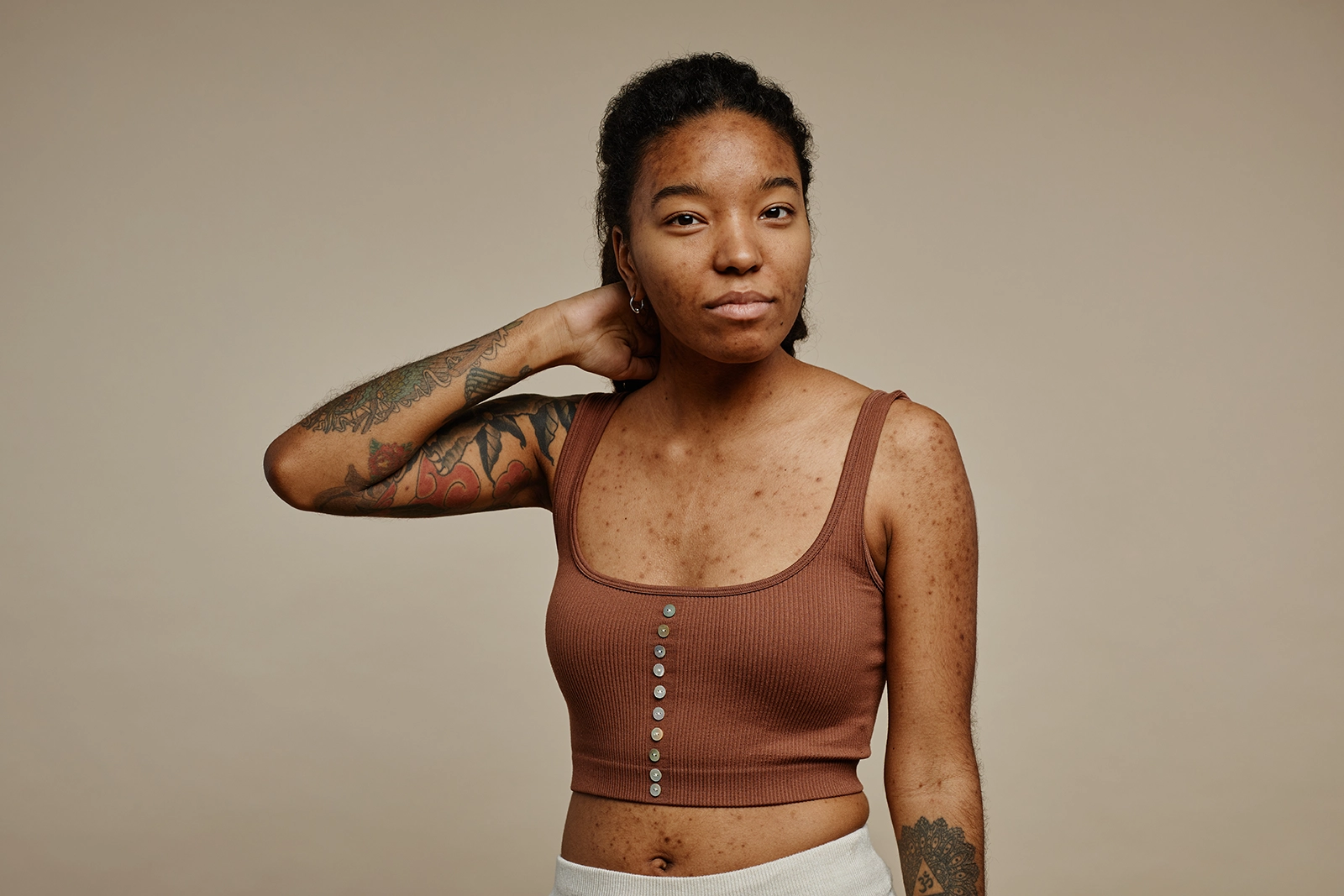We use cookies to enhance your browsing experience and analyze the performance of our website. By clicking Continue, you agree to the use of cookies. For more information, please see our Privacy Policy or update your Cookie Preferences.


Acne affects millions of people worldwide and it's well known that hormonal factors and genetics play an important role in it's development. The latest research suggests a strong connection between gut health and skin conditions. In this article, we'll talk about the 7 key steps you can take to optimize your gut health and promote clearer, healthier skin.
Acne can be frustrating and often challenging to treat. If you've tried skincare products and treatments but been disappointed by the results, it may be time to look at the connection between your gut and your skin.
Your gut is home to a large community of bacteria, yeast, and sometimes parasites, known as the gut microbiome. These microorganisms play a necessary role in your overall health, including the health of your skin. Your skin is the largest organ in your body and acts as a mirror reflecting your internal health. When your gut microbiome is imbalanced or compromised, it can manifest on the skin's surface.
A healthy gut microbiome is rich in diversity, with a balance of beneficial bacteria. When this balance is disrupted, it can lead to various health issues, including skin problems.
A compromised gut barrier, known as leaky gut, can allow toxins and undigested food particles to enter the bloodstream, triggering inflammation and potentially leading to skin issues. There are multiple dietary and lifestyle factors that contribute to leaky gut including: alcohol, stress, chronic NSAID use (i.e., aspirin, ibuprofen, etc.), western-type diet (high consumption of red meat, animal fat, high sugar, and low fiber food), and prolonged and strenuous exercise
Individuals with gut issues often experience symptoms like gas and acid reflux, which can signal problems with properly digesting their food. This can lead to difficulty absorbing nutrients from the food, which can affect the overall health and appearance of the skin.
Certain foods, like gluten, dairy, corn, soy, and eggs, are known to trigger skin conditions in sensitive individuals. Identifying and eliminating these trigger foods can be beneficial. Food sensitivities are thought to be part of a vicious cycle in that they may trigger gut inflammation and damage leading to leaky gut. Leaky gut, in turn, can make a person more susceptible to developing food sensitivities.
Oral antibiotics can help reduce the bacteria that contribute to acne formation, and are a commonly prescribed treatment. However, prolonged or frequent antibiotic use can disrupt the natural balance of bacteria in the gut and lead to a condition called dysbiosis, which can contribute to acne.
To mitigate risk, it's important to carefully consider the potential long-term consequences of antibiotic use for acne and explore alternative treatments or strategies whenever possible. Additionally, a healthy gut microbiome can be maintained through dietary choices and, if necessary, the use of probiotics to support gut health during and after antibiotic treatment.

Improving gut health can lead to healthier, clearer skin. If you suspect that your gut health is contributing to your skin issues, consider the following steps:
Take a Gut Health Test to better understand your gastrointestinal function and identify imbalances, inflammation, or infections that may be affecting your skin. Genova's comprehensive testing offers suggestions for ways to improve your overall gut health.
Common food sensitivity culprits like gluten, dairy, soy, and eggs can trigger reactions. There are two ways to identify trigger foods: by completing an elimination or rechallenge diet over the course of several weeks, or by completing a simple, non-invasive blood test to look for sensitivities. Genova's Food Sensitivity Test uses just a few drops of blood from a simple finger-stick to look at over 80 of the most common culprits of reactions.
Fiber is vital for good bacteria to produce beneficial short-chain fatty acids (SCFAs) that reduce inflammation. SCFAs contribute to the healthy structure and function of the intestinal lining. A Gut Health Test measures SCFAs levels which are commonly low due to the lack of fiber-rich diets. Whole grains, beans, nuts, seeds, fruits, vegetables, and cooled potatoes support SCFA levels.
Supplements may be necessary to address specific gut imbalances or deficiencies, such as digestive enzymes or probiotics. Studies show that the oral probiotics Lactobacillus rhamnosus or Lactobacillus plantarum improve the appearance of acne.
Monitor your blood sugar levels and make dietary choices that help stabilize them. Reducing sugar intake and incorporating complex carbohydrates can be beneficial. Scientific research suggests that diets including Paleo, ketogenic, Mediterranean, or intermittent fasting may help acne sufferers. These diets contain a decreased amount of processed, sugary foods which can stabilize blood sugar.
Chronic stress can worsen skin issues. Stress can also disrupt microbiome balance and lead to leaky gut. Incorporate stress-reduction techniques into your daily routine, such as meditation, deep breathing, or physical activity.
If your skin condition is severe or persistent, consult a healthcare professional, such as a functional medicine practitioner or dermatologist, for personalized guidance and treatment options.
While the gut-skin connection may not be the sole cause of acne, it is a major factor to consider. Achieving clear and healthy skin often involves addressing gut health, optimizing nutrition, and managing stress. By understanding this connection and taking steps to improve your gut health, you can work toward clearer and more radiant skin. Remember that everyone's body is unique, so what works best for you may require a personalized approach and the guidance of a healthcare professional.
If you'd like to learn more about the gut-skin connection, check out episode #247 of The Lab Report: Acne - Beyond Skin Deep with Lienna May.
This article is meant for educational purposes only and is not meant to be misconstrued as medical diagnosis or treatment advice.